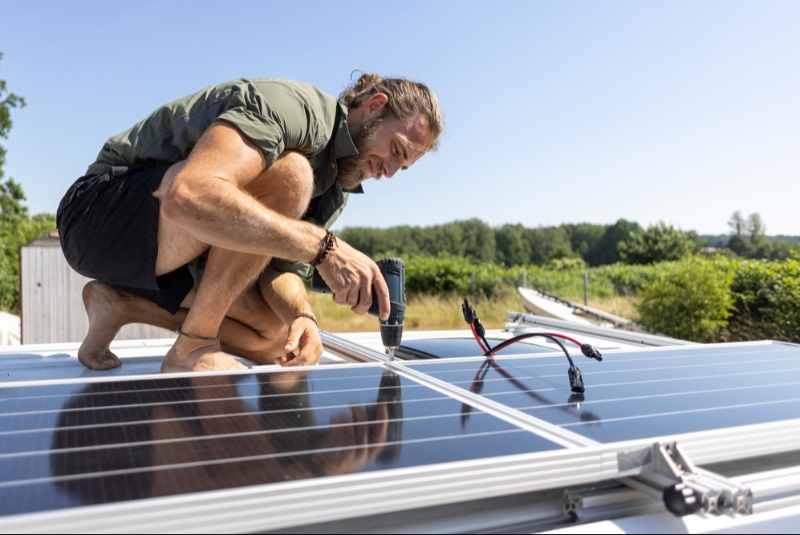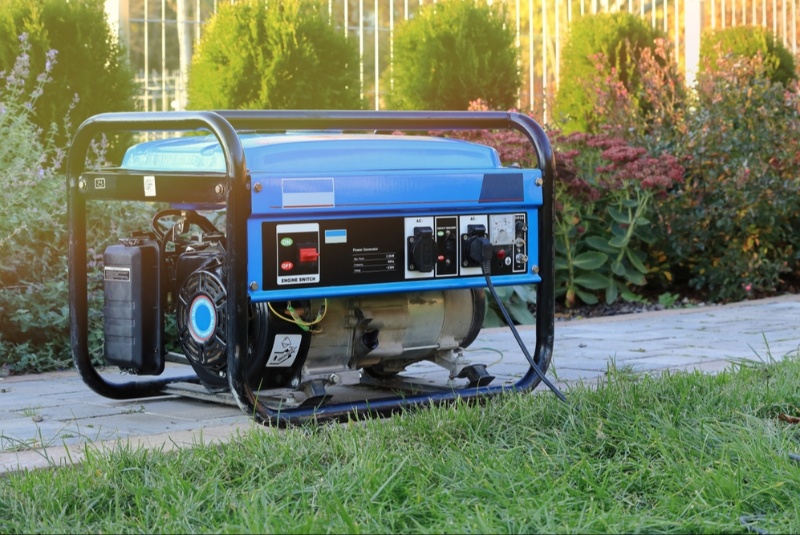Harnessing solar power for your RV or camper is an excellent way to enjoy off-grid adventures while maintaining access to electricity. High-efficiency solar panels can provide the energy needed for lighting, appliances, and other electrical devices, making your trips more convenient and eco-friendly. This comprehensive guide offers essential tips and insights to help you choose the best high-efficiency solar panels for your RV or camper, ensuring you maximize energy output and sustainability.
Understanding Solar Panel Types
Solar panels come in various types, each with different efficiencies and costs. Monocrystalline panels are known for their high efficiency and space-saving design, making them ideal for RVs and campers. Polycrystalline panels are more affordable but slightly less efficient. Thin-film panels are lightweight and flexible but have lower efficiency and are better suited for unique installations. Understanding these types helps you select a solar panel that fits your needs and budget, ensuring optimal performance and value for your RV or camper.
Evaluating Efficiency Ratings
Efficiency ratings indicate how well a solar panel converts sunlight into usable electricity. Higher efficiency panels produce more power in less space, which is crucial for RVs and campers with limited roof space. Monocrystalline panels typically offer the highest efficiency, ranging from 15% to 22%. Evaluating efficiency ratings ensures you choose panels that maximize energy production, providing reliable power for your off-grid adventures and reducing the number of panels needed.
Considering Power Output
Power output, measured in watts, determines how much electricity a solar panel can generate. The power requirements of your RV or camper will depend on the devices and appliances you plan to use. Calculate your daily energy consumption and choose panels that can meet or exceed this demand. For example, if you need 600 watts per day and plan to camp in sunny areas, a 200-watt panel system might suffice. Considering power output ensures your solar setup can handle your energy needs, providing consistent power supply.
Assessing Size and Weight
The size and weight of solar panels are important factors for RV and camper installations. Space on the roof or other mounting areas is often limited, so compact and lightweight panels are preferable. Monocrystalline panels offer high efficiency in a smaller footprint, making them ideal for maximizing available space. Assessing size and weight ensures your panels fit comfortably on your RV or camper, avoiding overloading the roof and maintaining vehicle balance.
Exploring Mounting Options
Mounting options for solar panels vary based on the design and setup of your RV or camper. Fixed mounts are the most common and are permanently attached to the roof, providing a stable installation. Adjustable mounts allow you to tilt the panels towards the sun, optimizing energy production. Portable panels can be set up on the ground and moved as needed, offering flexibility but requiring storage space when not in use. Exploring mounting options ensures you choose a setup that suits your needs and maximizes solar exposure.

Understanding Charge Controllers
A charge controller regulates the voltage and current coming from the solar panels to the battery, preventing overcharging and damage. There are two main types: Pulse Width Modulation (PWM) and Maximum Power Point Tracking (MPPT). MPPT controllers are more efficient, especially in varied sunlight conditions, as they optimize the power output of the panels. Understanding charge controllers ensures your solar system operates efficiently and extends the lifespan of your batteries, providing reliable power management.
Evaluating Battery Storage
Battery storage is essential for storing the electricity generated by your solar panels for later use. Deep-cycle batteries, such as AGM or lithium-ion, are commonly used in RV solar systems due to their durability and ability to discharge and recharge repeatedly. The capacity of your battery bank should match your energy needs and the output of your solar panels. Evaluating battery storage ensures you have enough power stored to meet your needs during periods of low sunlight or high energy consumption.
Considering Inverter Types
Inverters convert the DC power generated by solar panels into AC power, which is used by most household appliances. There are two main types: pure sine wave and modified sine wave inverters. Pure sine wave inverters provide cleaner power and are better for sensitive electronics, while modified sine wave inverters are more affordable but may not work well with all devices. Considering inverter types ensures your solar system can power your appliances safely and efficiently.
Assessing Durability and Weather Resistance
Solar panels for RVs and campers must withstand various weather conditions, including rain, snow, and high winds. Look for panels with robust construction and weather-resistant materials. Tempered glass and aluminum frames offer durability, while waterproof junction boxes and corrosion-resistant coatings provide additional protection. Assessing durability and weather resistance ensures your panels remain functional and reliable throughout your travels, providing peace of mind and long-term performance.
Reviewing Warranty and Support
A good warranty and reliable customer support are important when investing in solar panels. Look for panels with at least a 25-year warranty, which is standard for high-quality panels. Check the manufacturer’s reputation for customer service and support, including availability of technical assistance and ease of warranty claims. Reviewing warranty and support ensures you invest in a product that is backed by reliable service, providing confidence and protection for your purchase.
Comparing Costs and Value
Solar panels come in a range of prices, from budget-friendly options to premium models. Determine your budget and prioritize the features that are most important to you. While higher-priced panels often offer better efficiency and durability, there are many affordable options that provide excellent value. Consider the overall value, including efficiency, warranty, and support, rather than just the initial cost. Comparing costs and value ensures you make a cost-effective purchase that meets your needs and provides long-term benefits.
Reading Reviews and Seeking Recommendations
Customer reviews and expert recommendations provide valuable insights into the performance and reliability of different solar panels. Look for detailed reviews that discuss efficiency, durability, ease of installation, and overall satisfaction. Professional reviews and consumer reports offer in-depth analysis and comparisons. Additionally, seek recommendations from friends, family, or online communities who have experience with RV solar systems. Reading reviews and seeking recommendations ensures you make an informed decision based on real-world experiences and expert opinions.
Testing Before Purchase
If possible, test the solar panels before making a purchase. Visit stores that offer display models or attend RV and camping shows where you can see the panels in action. Assess the build quality, ease of installation, and overall performance. Pay attention to how well the panels fit your RV or camper and whether they meet your energy needs. Testing before purchase ensures you choose panels that meet your expectations and avoid potential issues after buying.
Supporting Reputable Brands
Choosing a reputable brand known for quality and innovation enhances your confidence in your purchase. Established brands often provide better customer support, more comprehensive warranties, and a wider range of replacement parts and accessories. Research brands with a history of producing reliable and high-quality solar panels. Supporting reputable brands ensures you invest in a product that is built to last and backed by reliable service, providing peace of mind and long-term satisfaction.
Selecting high-efficiency solar panels for your RV or camper involves understanding different types, evaluating efficiency ratings, and considering power output. Assessing size, weight, and mounting options are essential for optimal installation. Understanding charge controllers, battery storage, and inverters ensures your system operates efficiently. Assessing durability, reviewing warranty and support, comparing costs, reading reviews, testing before purchase, and supporting reputable brands further guide your decision. Use this guide to navigate the market confidently and find the perfect solar panels that offer efficiency, reliability, and value for your off-grid adventures.




